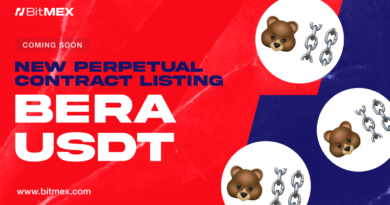Important context behind ASIC’s recent judgment and why Australia should prioritise implementing a clear crypto regulatory framework
What happened
Recently, an Australian Federal Court issued a judgment in a lawsuit filed by ASIC against Kraken concerning the availability of our Margin Extension product to Australian retail investors.
We adamantly believe that our clients deserve access to innovative crypto products. We supported the Court’s effort to seek clarification around our Margin Extension product, which we believed fully complied with local laws.
At the heart of the judgment, the Court determined that when we extended margin in fiat currency to clients it was (and is) subject to the Design and Distribution Obligations (DDO) of the Corporations Act. However, this was not the case when we extended margin to clients in cryptocurrency.
Why this matters
Considering the bigger picture, the Court’s decision was a win for those of us that are advocating for new laws to govern crypto. Although we are disappointed that the ruling found an aspect of Kraken’s margin product violated part of the Corporations Act, the judgment highlighted, and clearly affirmed, that existing Australian law is not effective at regulating crypto.
This lack of clarity is a deeply unsatisfactory ongoing situation for the Australian crypto industry. Australian crypto investors and businesses continue to operate in a confusing and uncertain regulatory environment. This ruling makes it clearer than ever that bespoke crypto regulation is urgently needed.
Australia has taken important steps, including consulting on a draft approach that we broadly support, towards delivering a regulatory framework for crypto. Unfortunately, despite the best efforts of local industry players and the Treasury, legislation could be delayed beyond the end of the year. The industry is at risk of missing the broader economic opportunity that crypto innovation brings.
Globally, we’ve seen a race to provide tailored regulation for cryptoassets. Clear and proportionate frameworks allow individuals to safely harness the potential of this transformative technology with appropriate regulatory protections.
What’s next?
We comply with legal and regulatory requirements in all jurisdictions in which we operate. Following the ruling, we immediately moved to ensure that our clients can trade using a compliant offering. As such, the changes set out below have been implemented to our Margin Extension product.
Kraken is committed to expanding its compliant product offering and is working on additional eligibility pathways for fiat margin extensions in the coming months.
Product changes (as of 30 August 2024)
Margin trading with fiat is now restricted for clients who reside in Australia, unless they are a Wholesale Investor (or ‘wholesale client’, as defined by the Corporations Act 2001). These restrictions do not affect margin extensions when trading with cryptoassets (see table below).
Pair TypesPair ExamplesBuy to open a long position*Sell to open a short position*Crypto vs. CryptoBTC/ETH, USDT/BTCRestrictions do not applyRestrictions do not applyCrypto vs. FiatBTC/AUD,USDT/USDRestrictions applyRestrictions do not apply
* No restrictions apply to closing or reducing existing margin positions. Clients will always be permitted to enter trades to buy back existing shorts or sell out existing longs.
How can I qualify as a Wholesale Investor?
For Australian clients to be eligible for margin trading with fiat, they will need to demonstrate that they qualify as one of the following categories of Wholesale Investor:
a high net worth individual or controlled entity;
a professional investor;
a large corporate (by employee size); or
a related entity of a Wholesale Investor.
More details on this process and the categories listed above can be found in this support article and clients who believe they may qualify should complete this form to begin the process.
These materials are for general information purposes only and are not investment advice or a recommendation or solicitation to buy, sell, stake, or hold any cryptoasset or to engage in any specific trading strategy. Kraken makes no representation or warranty of any kind, express or implied, as to the accuracy, completeness, timeliness, suitability or validity of any such information and will not be liable for any errors, omissions, or delays in this information or any losses, injuries, or damages arising from its display or use. Kraken does not and will not work to increase or decrease the price of any particular cryptoasset it makes available. Some crypto products and markets are unregulated, and you may not be protected by government compensation and/or regulatory protection schemes. The unpredictable nature of the cryptoasset markets can lead to loss of funds. Tax may be payable on any return and/or on any increase in the value of your cryptoassets and you should seek independent advice on your taxation position. Geographic restrictions may apply. Availability of margin trading services is subject to certain limitations and eligibility criteria. Trading using margin involves an element of risk and may not be suitable for everyone. Read Kraken’s Margin Disclosure Statement to learn more.
The post Important context behind ASIC’s recent judgment and why Australia should prioritise implementing a clear crypto regulatory framework appeared first on Kraken Blog.
Kraken Blog


















